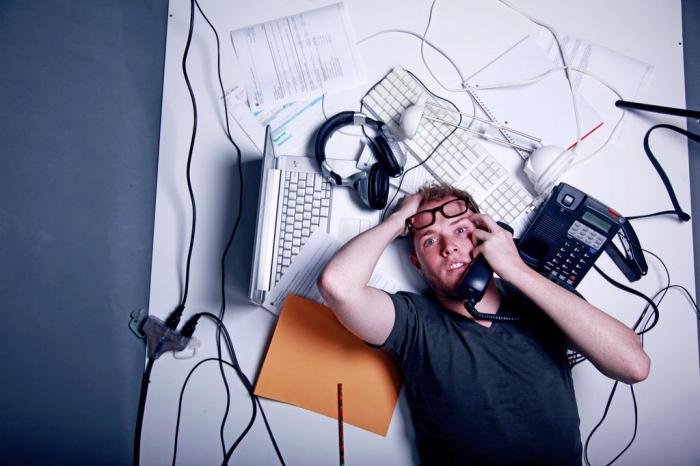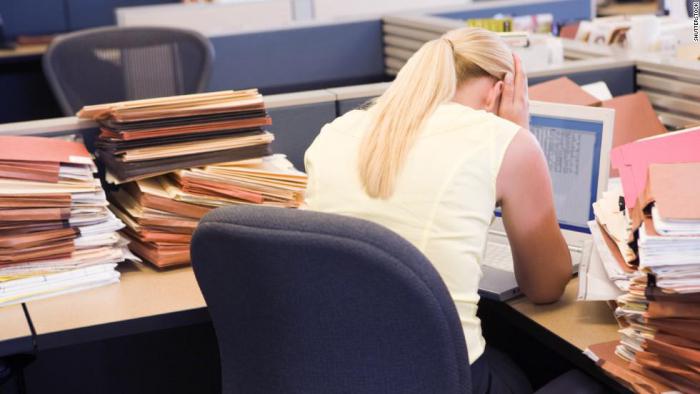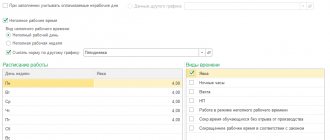What are working hours, working hours and rest time according to the Labor Code of the Russian Federation?
In accordance with stat. The Labor Code of the Russian Federation, working time in an organization is the time established by the labor regulations for the performance of duties by personnel. If specialists work beyond the established normal duration of employment, they talk about overtime work (stat. Labor Code of the Russian Federation) or irregular work (stat. Labor Code of the Russian Federation). The daily duration of a shift (working day) is also regulated by law (stat. Labor Code of the Russian Federation). The employer's HR officer is required to keep records of actual output for each employee.
According to stat. 100 of the Labor Code of the Russian Federation, the employment regime at an enterprise must provide for the length of the working week with weekend dates. When setting rest time, the employer needs to take into account the nature of the work - irregular, shift, part-time, five- or six-day work. In some cases, the scope of the organization's activities is also taken into account.
Coronavirus. Extension of days off and other solutions
Dear friends,
With the beginning of the summer season, the flow of tourists and the activity of the townspeople themselves have increased significantly. At the same time, the weather is still more reminiscent of spring than summer. And it seems that the seasonal epidemiological peak has shifted from May to June. Over the past week, the situation with the spread of coronavirus infection has worsened dramatically. The number of newly diagnosed Covid cases has jumped to the peak levels of last year.
In order to provide medical care to a large flow of patients, we are forced to once again repurpose thousands of beds in city hospitals.
And the most alarming thing. Doctors say that there are many seriously ill patients. Moreover, not only among patients of “traditional” risk groups. Many middle-aged and even young people are seriously ill.
It is impossible not to react to such a situation.
Therefore, we recommend that as many employees as possible who have not been vaccinated against COVID-19 switch to remote work—at least 30% of the organization’s payroll. This is especially true for older people over 65 years of age and citizens with chronic diseases who have not yet been vaccinated.
We strongly recommend and ask older Muscovites to refrain from traveling and to stay at home or in the country.
Of course, all citizens must strictly comply with sanitary and epidemiological requirements in transport, in public places and in enterprises.
And, perhaps, the most important thing. According to epidemiologists, it is now necessary, if not stopped, then at least to reduce the rate of spread of the virus.
In order to stop the growth of morbidity and save people’s lives, today I signed a decree providing for non-working days from June 15 to 19, 2021, with the preservation of wages for workers.
Thus, the “long weekend” in Moscow will last 9 days - from June 12 to June 20, 2021.
This decision applies to enterprises and organizations of all forms of ownership that usually do not work on weekends (Sundays).
But, of course, it does not apply to organizations that are critically important for ensuring the functioning of city infrastructure, as well as to defense industry enterprises, Rosatom, Roscosmos and some other strategic industries in accordance with the Decree of the President of the Russian Federation of May 11, 2020 city No. 316.
In addition, from June 13 to June 20, 2021, the operation of children's playrooms and food courts in shopping centers and other similar organizations is temporarily suspended.
In public catering organizations (restaurants, cafes, bars), as well as in nightclubs, karaoke, bowling alleys, discos and other entertainment establishments, serving visitors at night is prohibited - from 23.00 to 6.00 (with the exception of take-out services).
In large city parks and natural areas, attractions, children's and sports grounds, rental points, gazebos and other recreational and entertainment facilities will be closed. In fact, it will only be possible to walk in the parks.
Friends,
The “long weekend” will help cope with the increase in incidence only if each of us exercises maximum caution during these days.
And of course, we need to get vaccinated more actively. Until we provide truly mass vaccination, the city will be in constant fever.
All vaccination points will be open on weekends, please come by.
Sincerely, Your Mayor S. Sobyanin
Source: Sergei Sobyanin's blog
Working seven days a week is the employer's responsibility
Regardless of the industry sector of the enterprise, every employee is entitled to rest. One of the main types of rest time is weekly days off (stat. 107 of the Labor Code of the Russian Federation). With a 5-day week, two days off are allowed weekly, with a 6-day week - one (stat. 111 of the Labor Code of the Russian Federation). Sunday is considered a general compulsory day off for everyone. The second free day can be established by the employer’s internal regulations on any day of the week. The schedule may include work on weekends, if the production process cannot be stopped due to its specifics, then rest days are distributed over different days of the week.
Each employee has the right to use their days off at their own discretion. At the same time, employers are prohibited from engaging staff to work on rest days without their consent. Exceptions are force majeure and emergency situations specified in Art. 113 of the Labor Code of the Russian Federation (prevention of disasters, accidents, introduction of martial law, etc.). Such situations cannot be permanent. If personnel are required to work on weekends to complete urgent work, the written consent of the employees themselves will be additionally required.
Can an employee not have lunch breaks?
In exceptional cases, in conditions of continuous production and taking into account its technological features, employees cannot leave the workplace. no need to provide them with a break for rest and food . But at the same time, the employer must create conditions for eating at the workplace (Article 108 of the Labor Code of the Russian Federation).
In such a situation, the time when workers eat is included in working hours and paid on a general basis. The employer must equip a special place for eating with tables and chairs, a microwave oven and a kettle.
You need to understand that for such a decision, the company needs to have compelling reasons and documentary evidence of the impossibility of providing lunch. As a rule, this mode is used at hazardous production facilities that require continuous monitoring, or when working on equipment that cannot be for technical reasons.
Important
It is permissible not to establish a lunch break in a 4-hour or less working day - if there is such a condition in the internal rules. work. regulations or employment contract (part 1 of article 108 of the Labor Code of the Russian Federation).
Penalty for overtime
From the norms of the Labor Code of the Russian Federation, we can conclude that the constant involvement of personnel in employment outside working hours, or without days off, is unacceptable. At the same time, one-time cases of such a work schedule, the presence of valid reasons and the execution of all personnel documents can justify and confirm the need for employees to be employed on weekends off.
If the organization works without days off for a long time, the employer’s liability arises for violation of labor legislation according to Stat. 5.27 Code of Administrative Offenses of the Russian Federation (part 1):
- for officials of the employer - issuing a warning or collecting a fine of 1000-5000 rubles,
- for entrepreneurs - a fine of 1000-5000 rubles,
- for legal entities - a fine of 30,000-50,000 rubles.
Note! For repeated similar offenses, sanctions are increased by Part 2 of Art. 5.27 Code of Administrative Offenses of the Russian Federation:
- for officials, the fine increases to 10,000-20,000 rubles, or disqualification is possible for up to 3 years,
- fine for individual entrepreneurs – 10,000-20,000 rubles,
- companies can be fined 50,000-70,000 rubles.
Working overtime reduces productivity
Working seven days a week became a reality in our society at the end of the 20th century. More and more companies are focused on making instant profits. The practice of extending the work week is winning thanks to modern entrepreneurs who are inspired to search for ideas and then implement them. This trend is being picked up by freelancers who have piecework wages, doctors and social workers who agree to part-time work because of the low salary.
Applying conditioner to the roots: the hairdresser spoke about mistakes when washing hair
On Valentine's Day, the Russian series “Sherlock in Russia” will be shown in Japan
Piedmont and other ski resorts in Italy will reopen from February 15
The problem is that longer workweeks force workaholics to pay with their health. There is much evidence that overtime is ineffective. They reduce productivity and lead to a phenomenon called professional burnout. Due to constant stress, people feel tired and have problems sleeping, which does not allow the body to recover. This ultimately leads to a range of mental and physical illnesses.
People are forced to sacrifice sleep
The most obvious effect of overwork is sleep deprivation. People sacrifice their vacation for the sake of mythical profits or improving their own status in the company. However, this situation further reinforces the vicious circle. Freelancing platforms have come under fire lately for promoting an unhealthy work model in which people are forced to work overtime to meet deadlines and maintain their reputation.
One survey of freelancers in Southeast Asia revealed a disturbing trend. More than half of the respondents said they were forced to work at very high speeds, 60% of them faced deadlines, and another 22% of respondents experienced physical pain from their work.

Always in touch
The era when people sat in offices from 9:00 to 17:00 is long gone. You can't help but check and respond to messages from work, otherwise you won't be able to get ahead of your competitors and will fall far behind. Good feedback is valued above all else among modern employers. However, this makes you forget about your interests and the interests of your family.
Your body is placed in a state of permanent stress. You think about being called into work at any moment of the day or night, and it doesn't let you relax. Experts compare the effects of constant waiting to something called burnout syndrome. In other words, the need to maintain close feedback affects people in the same way as working seven days a week until midnight.

Lack of sleep can be compared to drinking alcohol
Imagine that you woke up at 7 am, went to work and stayed there until 1 am. A whopping 17 hours of work means you have to take the next day off. And if this does not happen, and the next morning you are back at the enterprise, your concentration and productivity will drop to the lowest levels. Scientists have found that this state is equivalent to intoxication with a blood alcohol concentration of 0.05 percent, obtained from drinking two cans of beer.
We can safely summarize that recycling knocks the ground under our feet in the same way as alcohol does. But if you extended your workday until 5 a.m., the disruption to your internal systems could be compared to having 0.1 percent alcohol in your blood. Thus, overwork significantly reduces your productivity. This negatively affects your reaction, coordination and speed of decision-making.

Yellow, pink, lilac: the most trendy colors of the spring-summer 2021 season
Details of the Third Reich's secret expedition to Antarctica have emerged
Stefan and Theodor: the most unusual names of newborns in 2021 in Moscow
A drunk person cannot drive; this leads to irreversible consequences on the road. The same thing happens to workaholics who go to work after a sleepless night. But while office workers can afford to sit behind their colleagues, factory workers at their machines do not have that luxury. They perform activities that themselves are associated with a risk of increased injury, and overwork aggravates the likelihood of an accident.

Accidents in the workplace
It is obvious that people who are overworked are more tired and make more mistakes. If you hold a responsible position that requires concentration, fatigue could potentially lead to an accident. Surprisingly, this is extremely difficult to prove. One study, which analyzed 13 years of data, found that jobs with irregular work hours were 61% more likely to have an injury compared to jobs without overtime.
This study does not claim that overwork fatigue is the cause of accidents. However, it does lead to certain thoughts.
The actress from the series “SashaTanya” showed the face of her 2-month-old son
Money may not be returned: denial of compensation to hotel customers will be enshrined in law
“My good Olya, the crocodile of my soul!”: what Chekhov called his beloved wife








